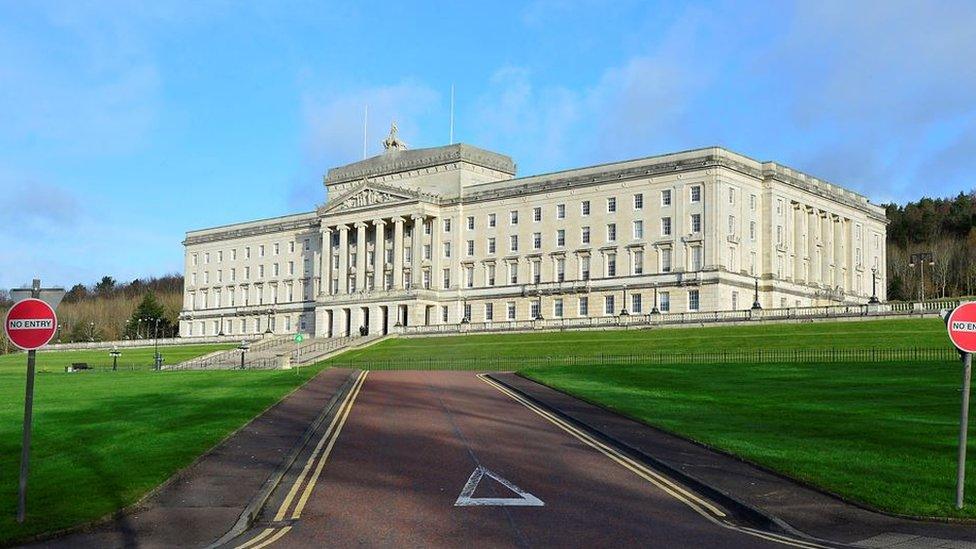Stormont budget: NI Secretary wants money raising options
- Published
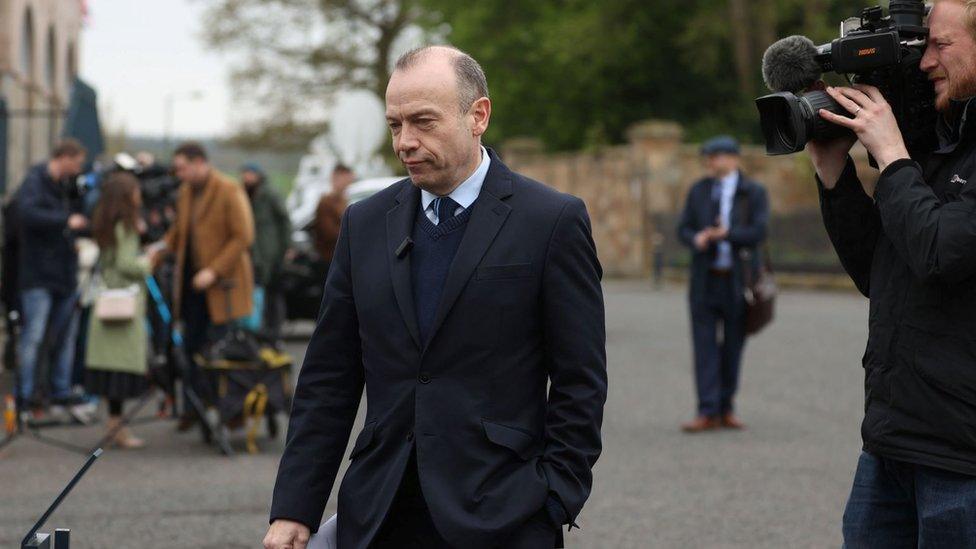
Mr Heaton-Harris has previously raised the prospect of water and prescription charges
The Northern Ireland Secretary has formally asked Stormont civil servants to set out options for raising more public revenue.
Chris Heaton-Harris denied that the move was to increase pressure on the DUP to restore power-sharing.
He had to set a budget for this financial year as there is no functioning government at Stormont.
The SDLP's Matthew O'Toole said Mr Heaton-Harris was making a "crude intervention" to pressure the DUP.
The Northern Ireland Civil Service believes it may need to find £800m this year given the pressures on its budgets.
In a letter to permanent secretaries, Mr Heaton Harris said Stormont's future finances should be put on a "surer footing".
He has set a deadline of the end of June for information to be provided.
He said that he was "keen to explore super parity measures including water charges, prescription charges and tuition fees".
The letter adds that he hopes the relevant departments can provide advice on that "at pace".
'Blunt attempt
Responding to the letter, Mr O'Toole said: "Today's crude intervention from Chris Heaton-Harris is nothing more than a blunt attempt to make working families pay the price of the DUP's boycott of government."
Mr Heaton Harris dismissed such claims, saying it was "about making sure the budget is sustainable".
DUP assembly member Edwin Poots said the proposals were "tinkering at the edges" of Northern Ireland's budget.
He said: "Unless there is a total recalibration of how Northern Ireland is funded, the situation will only get worse."
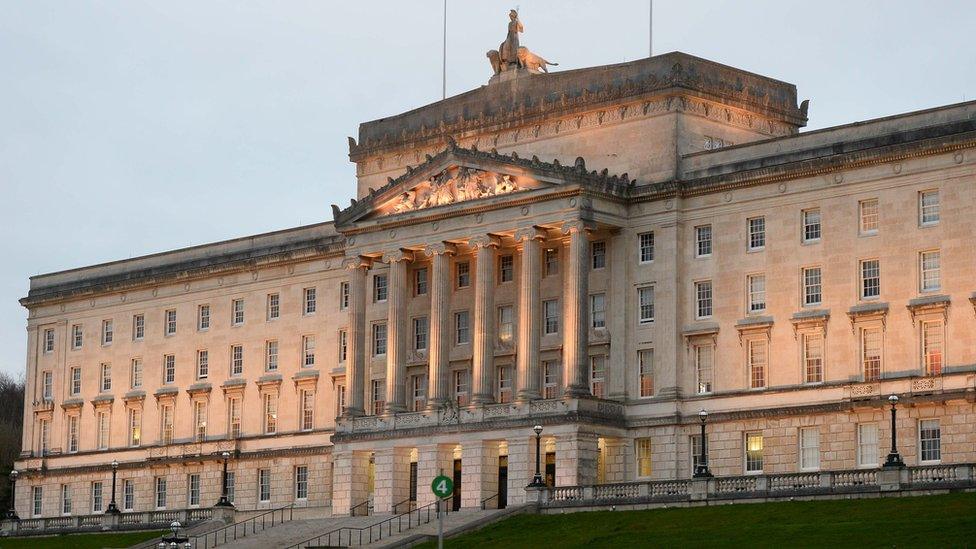
The Northern Ireland Secretary called for a "robust set of options" for a future executive to consider
Deputy leader of the Alliance Party Stephen Farry said that that new funding was needed.
"Transformation needs to be on an invest-to-save basis. It will require new funding. Reform won't happen from a burning platform of cuts," he tweeted., external
Mr Heaton-Harris told reporters he wanted to ensure NI had future access to "proper, quality public services" that are sustainable and affordable.
He added that this was the "first step" in a long decision-making process.
"It's so anybody who takes decisions in the future on the budget and its sustainability also has an understanding about what revenue can be raised too," he said.
He said while he currently does not have powers to impose introducing water charges and other proposals, he would "not rule out anything for the future" if there remains no executive in place.
The secretary of state added that he had "tonnes of patience" with the DUP and was happy to move "inch by inch" to get a solution to restore power-sharing in a way that works for all parties.
Prescription and water charges
Mr Heaton-Harris has previously raised the prospect of introducing revenue-raising measures like water charges and prescription charges but has, so far, held back from implementing them.
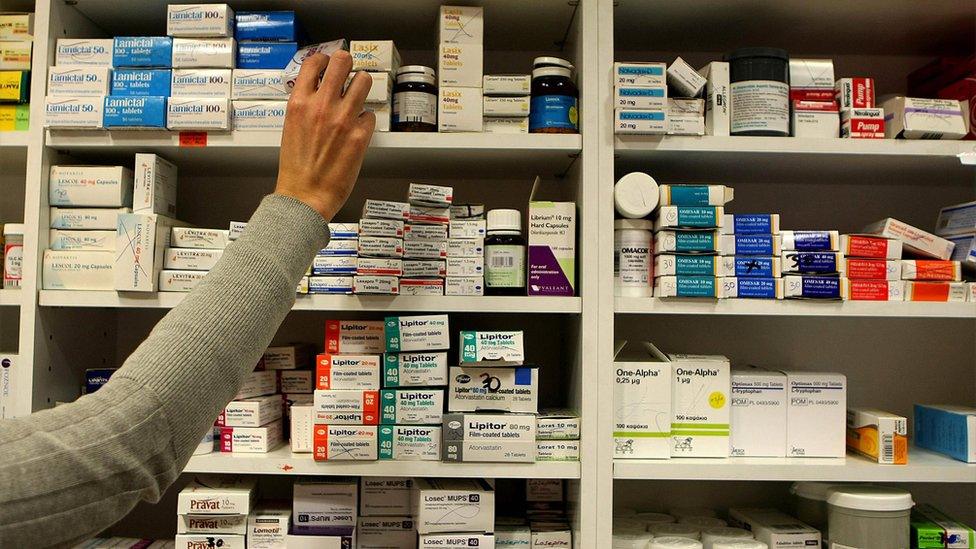
Re-introducing prescription charges are among the suggested revenue raising measures
The government has also asked civil servants to provide advice and potential revenue generated by other measures including:
Increasing Translink fares
Continuing hospital parking charges
Increasing MOT charges
Introducing domiciliary care charges
Mr Heaton-Harris told permanent secretaries that they should seek to provide an initial return of information by 30 June, with a fuller return by the end of July.
"I am requesting this fuller work be started now to avoid an overly quick turnaround once we have the first batch of information and advice back at the end of June," he added.
He said he hoped this would allow preparation for a "robust set of options" for a future executive to consider.
Northern Ireland has been without a functioning power-sharing government since February 2022, when the DUP withdrew from the executive due to its protest over post-Brexit trade rules for Northern Ireland.
The party is facing pressure to return to government but has insisted it will not do so until the government legislates for further changes to the NI Protocol.
Related topics
- Published27 April 2023
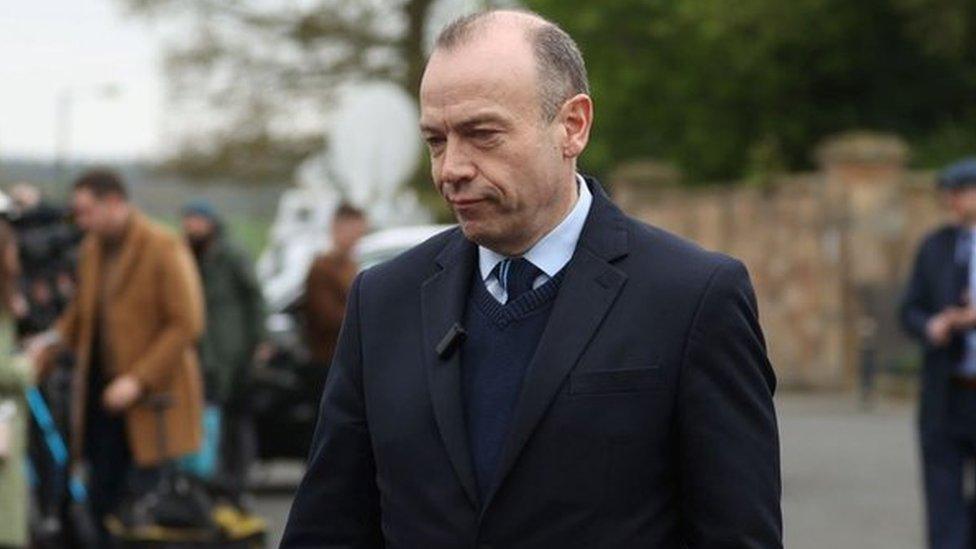
- Published27 April 2023
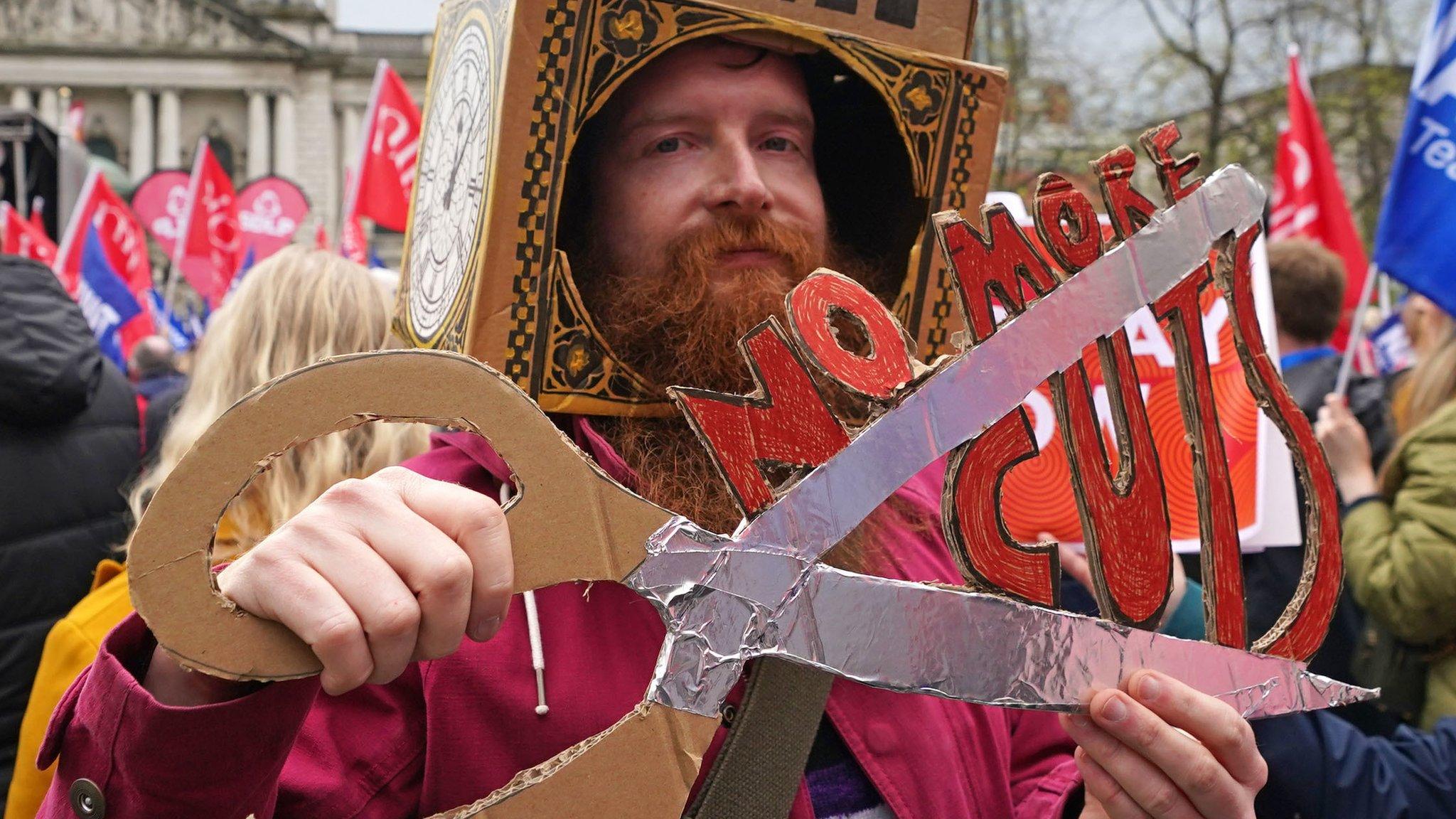
- Published6 April 2023
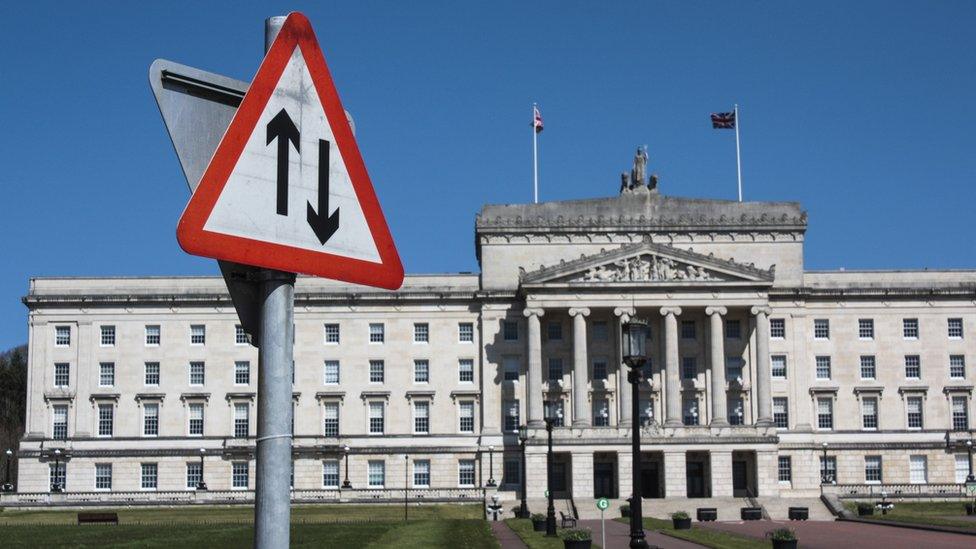
- Published1 February 2023
